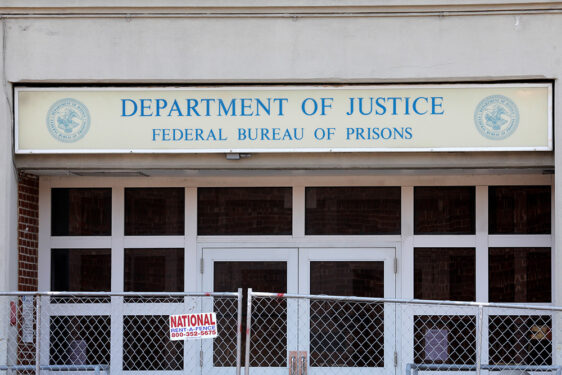
As the world transitioned to shelter-in-place mode, and the word coronavirus entered into the lexicon of everyday life, one particular technological innovation became the epicenter of human connection: video and audio conferences.
While churches, schools, and institutions reimagined and adapted to new forms of engaging their communities, for those in prison, the only way to speak with anyone from the outside has been through a screen.
“They do not have visits from their families in person,” said Sister Margaret McCabe, SUSC, who has spent more than 30 years in prison ministry, with most of her time spent at the Robert N. Davoren Center on Rikers Island. “They’ve had visits with their families on Zoom or the computer. The inmates are clear. All of us have to be careful about wearing our masks and social distancing.”
Sister Margaret, the Holy Union Sister from Astoria, said the jail’s chapel was only recently opened again but limited to a 10-person maximum capacity.
“When the virus set in, we couldn’t have in-house chapel services,” she said, “but we were considered essential workers, and the inmates are eligible to have some form of service.”
Out of the handful of facilities Sister Margaret ministers in, she hadn’t heard about the jail’s staff members testing positive for coronavirus or recently getting sick. She said that once a person is arrested, they’re quarantined for 12 days in individual cells at another facility.
“We’re a city jail … and the fact that they’re quarantined before they get put into housing areas as far as the inmates are concerned, it keeps the numbers down.”
According to the Bureau of Prison’s (BOP) November COVID-19 update, there are more than 125,000 federal inmates in BOP-managed institutions across the country. It reported that nationwide, more than 16,000 inmates had contracted COVID-19 in state and federal prisons, accounting for almost 13 percent of the total federal inmate population.
“Our divided political climate must not distract from the urgent needs facing prisons and jails across the nation, where over 1,054 people have already lost their lives to COVID-19,” said Heather Rice-Minus, the senior vice president of advocacy and church mobilization at the national Christian nonprofit “Prison Fellowship.”
Rice-Minus said her organization hopes federal lawmakers would advance a bipartisan COVID-19 response that would include funding for incarcerated students and sentencing relief and support for state and local governments working to reduce incarcerated populations.
For Sister Margaret, ministering to the incarcerated population’s spiritual needs means going beyond the bars and sharing compassion and empathy through in-person conversations. That’s been the usual routine for the 80-year-old sister who said she isn’t forced to work but chooses to because she’s been well-loved all her life and continues to be. She said that’s why she feels impassioned to share the light of Christ with those who are locked-up.
“I spent the last eight months, Sunday morning and afternoon going in and out of the housing areas to see if anybody wants a service, wants to pray, wants to talk so that they feel that we care about them,” Sister Margaret said. “I also go to the older folks, go through the women’s house, because there was no Catholic chaplain there.”
As the nation continues to grapple with coronavirus cases, lockdown restrictions, and the shuttering of businesses and churches, one church ministry in the Brooklyn diocese is also not backing down on how it’ll support the families affected by incarceration. Families, Fathers, and Children is a longstanding prison ministry at St. Augustine Church in Park Slope. The program helps families, especially children who have fathers in prison. Throughout the year, the ministry provides transportation for the families to prisons upstate.
According to ministry member Ellen Edelman, COVID-19 has halted trips upstate for the families and, since no outside visitors are allowed, the ministry isn’t able to provide its parenting class — one of its staple programs for the men in prison. Instead of communicating via computer screens, she said they’ve resorted to the traditional way of writing letters. As the holidays approach, Edelman said the ministry is brainstorming how they’ll celebrate their annual Christmas party, which is usually held at the church facility.
“We’re playing with the idea of mini parties and bringing the party to them,” she said.
While one diocesan ministry is rediscovering how to symbolically be the arms, hands, and feet of Christ to the imprisoned — from a distance — chaplains like Sister Margaret have the chance to look at some of them face-to-face.
“I feel for them,” she said. “I see something good and someone who can change.”

God bless Sr. Margaret